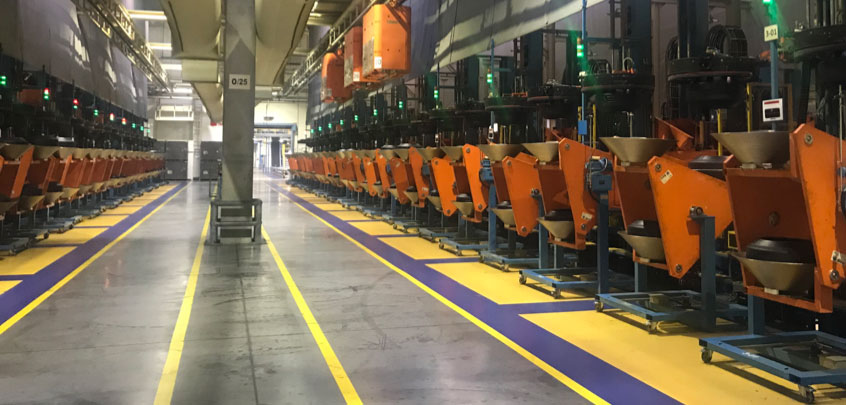Bridgestone EMEA is investing €36m (US$40.6m) to digitize its manufacturing operations and convert eight of its existing plants into smart factories. This will enable the company to respond faster and more flexibly to evolving customer demands. The factories will also be more energy efficient and produce less waste, thanks to the upgrades.
Employees will be upskilled so they can operate the new digital technologies, which will subsequently help to improve resource efficiency and job satisfaction.
Work to transform the facilities is already underway and will involve an overhaul of the entire production process – from semi-finished products, energy supply, maintenance, production monitoring and production planning – across eight of the company’s plants in Europe, including Poland, Hungary, Spain, Italy and France.
Phase one, badged Smart Energy, will focus on energy consumption and costs. Bridgestone aims to achieve a 10% reduction in the energy consumption of its factories. The Smart Energy system creates a link between the production plans and energy consumption, and creates models, which can be used to reduce energy consumption according to the requirements.
Digitization of the plants will enable data from tire production to be stored, analyzed and used by Bridgestone’s engineers in both Rome and Tokyo, to help design new and improved tire models. These new tire model designs will be returned to the plant in a digital format, enabling the production time of the first series of the new tires to be cut by 50%.
Digitization will also play a major role in improving Bridgestone’s production efficiency by enabling smart maintenance. Artificial intelligence will be used to analyze data and predict faults ahead so preventative action can be taken. The system will measure and analyze key parameters of the machinery with the help of sensors, and automatically suggest maintenance to avoid costly malfunctions. This new process will also help to optimize the planning of maintenance cycles.
To reduce waste, data on production performance will be sent to a cloud-based database, where a purpose-built algorithm will look for connections between the production parameters and the features of the manufactured tires. The results will be automatically forwarded to the on-site teams, who can then immediately take action and significantly reduce the number of production rejects.
Finally, logistics will also be considerably simplified. Introduction of smart materials technology will mean that specialists can digitally track and manage the path of prepared materials and semi-finished products within the factory. This will drastically simplify production planning and administrative processes, from mixing of materials to warehousing.
This US$40.6m investment follows the success of Bridgestone’s earlier initiatives to digitize the tire production process, through application of the company’s Examation technology (see the March 2017 issue of TTI) https://www.ukimediaevents.com/publication/a1affb78/68)
Adolfo Llorens, VP of manufacturing Bridgestone EMEA, commented, “This smart factory project will go a long way in making Bridgestone EMEA future-ready. Not only will our processes become more efficient and more sustainable, but the upgrades will ultimately lead to better products. For example, special algorithms that check the quality parameters of tires will enable an improvement in quality by 15%. I can’t wait to see how this project evolves over the next four years.”



